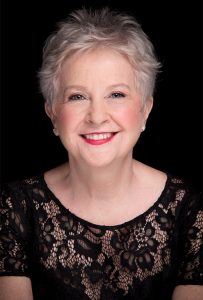True or False
June 9, 2021True or False (episode #2)
September 7, 2021“Over the next 20 years, Canada’s senior’s population — those age 65 and older — is expected to grow by 68%.”
A reverse mortgage is a loan that converts a portion of the equity in your home into 100% tax-free cash without having to sell or move. Your maximum borrowing amount will be age-dependent along with your home’s appraised value and your lender. The older you are, the likelihood may be that you have more equity in your home and therefore qualify for more money. The life expectancy in Canada has also increased, and government and company pensions are changing or falling to the wayside, so financial stressors for the ageing population are becoming more and more prevalent.
Reverse Mortgages are for people 55 and older. With Canada’s growing ageing population, those seeking retirement are considering reverse mortgages at a higher rate. It is essential to understand the pros and cons of a reverse mortgage to make the most beneficial decision.
Pros of reverse mortgages:
- You are able to leverage your most valuable asset, your home.
- You could access up to 55% of the equity from your home.
- The money you receive is 100% Tax-free.
- It does not affect your Government Pensions i.e. OAS, OAP
- No monthly mortgage payments.
- You may spend the money received as you see fit.
- You can stay in the home without time restrictions.
- You get to benefit from any future home price appreciation.
- There are many potential tax benefits because you don’t have to shuffle funds around between other savings accounts with a reverse mortgage.
- You choose how to be paid: in a lump sum, a series of advances, or both.
- It saves you money (generally) in the long run. Many people have residual cash in the end.
- People in need of extra cash or those looking into debt consolidation can reduce their monthly payments with a reverse mortgage.
Cons of reverse mortgages:
- The fees and interest rates are only slightly higher than with a traditional mortgage, Home Equity Loan or Home Equity Line of Credit (HELOC,) which works more like a credit card.
- You must pay back the borrowed amount, plus interest if or when you decide to leave or sell your home.
- Your loan balance increases over time unless you choose to make interest payments. In this case, the principal borrowed is the amount owed when you decide to leave or sell.
- If you are repaying your mortgage early, you’ll have to pay an early repayment charge, as you would with any type of mortgage
- Downsizing may be a better option. However, with more focus on ageing in place and making your home more accommodating as you age, perhaps staying in your home long-term is worthwhile.

Want to discuss reverse mortgages further?
Find out if a reverse mortgage is the best financial move for you. The pros do tend to outweigh the cons for a reverse mortgage, but let’s see what will best suit your situation. We have a wide variety of solutions to help you.
Call Deborah (905) 870-5726 and arrange a meeting to see what will work for you!


